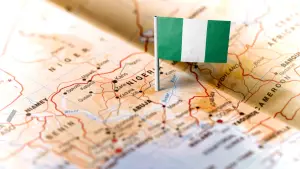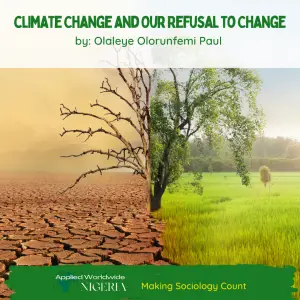In Nigeria, celebrations are more than just events; they are deeply rooted in tradition, culture, and the need to connect with others. Weddings, naming ceremonies, burials, and even casual family gatherings hold a special place in the hearts of Nigerians.
These moments are seen as opportunities to build and strengthen relationships, show gratitude, and share joy or grief as a community. However, 2024 brought challenges that forced many to rethink how these milestones were celebrated.
The soaring cost of living, driven by inflation and record-high fuel prices, made it hard for families to carry on with the elaborate festivities they were accustomed to. Instead of large, colorful gatherings, many celebrations were toned down or postponed altogether. Yet, even in these tough times, Nigerians found ways to adapt, ensuring that the essence of their traditions was not lost.
In this piece, we’ll explore how the economic challenges of 2024 reshaped Nigerian cultural practices and discuss the creative ways people adjusted to maintain their cultural identity while navigating financial pressures.
The Heavy Toll of Economic Hardship
2024 was a tough year for Nigerians. Inflation reached record highs, affecting the prices of everyday goods. For instance, the cost of food staples like rice, beans, and cooking oil nearly doubled. Transportation, which is central to many Nigerian celebrations, became a luxury as fuel prices skyrocketed. Long-distance travel for weddings, family reunions, or even funerals became nearly impossible for many.
These challenges hit home for countless families. For example, a man planning to marry in Enugu might have thought twice about inviting family members from Lagos. The cost of transporting guests, feeding them, and ensuring their comfort was simply too high. Similarly, parents in Kaduna preparing for their child’s naming ceremony faced tough choices between organizing a big celebration and meeting essential household needs.
The reality of limited financial resources meant that many families had to scale back, opting for simpler and less costly ways of marking significant occasions.

Cultural Celebrations Got a New Look
Nigerian culture thrives on communal gatherings. Events like weddings, naming ceremonies, and burials are not just about the individuals involved; they’re an opportunity for the community to come together. In normal circumstances, these occasions are marked by lavish displays of food, music, and traditional attire. But in 2024, this picture changed.
Weddings:
In the past, Nigerian weddings were often extravagant affairs involving hundreds of guests, multiple outfit changes, and a long list of vendors. In 2024, however, many couples opted for smaller ceremonies. Rather than booking large event halls, some chose to hold their weddings in church premises, private homes, or even online via Zoom.
A couple from Lagos shared how they spent just ₦200,000 on their wedding by inviting only 20 close friends and family members and cooking all the food themselves. It was a far cry from the million-naira budgets typical of Nigerian weddings, but it allowed them to celebrate meaningfully without sinking into debt.
Naming Ceremonies:
Traditionally, naming ceremonies involve a large gathering of family and friends, with prayers, music, and plenty of food. But in 2024, these events became much more intimate. Parents invited only a handful of people to their homes for small celebrations. Some even skipped the ceremonies entirely, choosing instead to announce their child’s name via WhatsApp or other social media platforms. A mother from Kano explained that while she wished she could host a big naming ceremony for her son, her priority was ensuring the family had enough to eat and pay school fees.
Burials:
Burials, another significant aspect of Nigerian culture, also changed. Large, multi-day ceremonies with guests traveling from all over the country became rare. Families opted for quiet burials, focusing on paying their respects without the financial burden of hosting an elaborate event.
December: A Time to Reconnect
After a year of low-key celebrations, December brought a renewed sense of togetherness. The end-of-year holidays have always been a special time in Nigeria, with families traveling to their hometowns to reconnect with loved ones. In 2024, despite the economic challenges, this tradition remained strong—albeit with some creative adjustments.
Pooling Resources:
With the high cost of transport, many families shared rides to reduce expenses. A group of cousins from Abuja, for instance, rented a bus together to travel to their hometown in Imo State. By splitting the cost, they made the journey affordable and enjoyable.
Community Cooking:
Instead of hosting individual family feasts, some neighborhoods pooled resources to organize communal meals. Everyone brought what they could—whether it was a bowl of rice, a bottle of palm oil, or firewood—and worked together to create a shared experience.
Social Media Moments:
For those who couldn’t travel, social media became a way to connect. Families held virtual gatherings, sharing photos, videos, and live streams to bridge the distance. A grandmother in Lagos shared how her children, scattered across three different states, held a Zoom call on Christmas Day to exchange greetings and prayers.
These efforts reminded everyone that while the holidays were different, the spirit of togetherness remained unchanged.
Lessons in Adaptability and Resilience
The changes in 2024’s cultural practices highlight a powerful truth: Nigerians are incredibly adaptable. Despite economic hardships, they found ways to preserve the essence of their traditions. The year revealed that it’s not the size of a celebration or the amount of money spent that makes it meaningful—it’s the love, connection, and shared moments that truly matter.
From a sociological perspective, these shifts show the resilience of Nigerian communities. Traditions evolved in response to financial constraints, but the core values of family, community, and connection stayed intact.
Conclusion
The economic pressures of 2024 may have reshaped how Nigerians celebrated, but they also brought out the best in people’s creativity and resourcefulness. Families found new ways to honor their traditions without compromising their financial well-being. The year taught us that culture isn’t about extravagance—it’s about meaning and connection.
As we look ahead, it’s worth asking: Will these changes stick, or will things return to the way they were? Either way, one thing is certain—Nigerians will continue to celebrate life, love, and community, no matter the challenges. And perhaps, these simpler, more heartfelt celebrations are exactly what we need to remind us of what truly matters.







